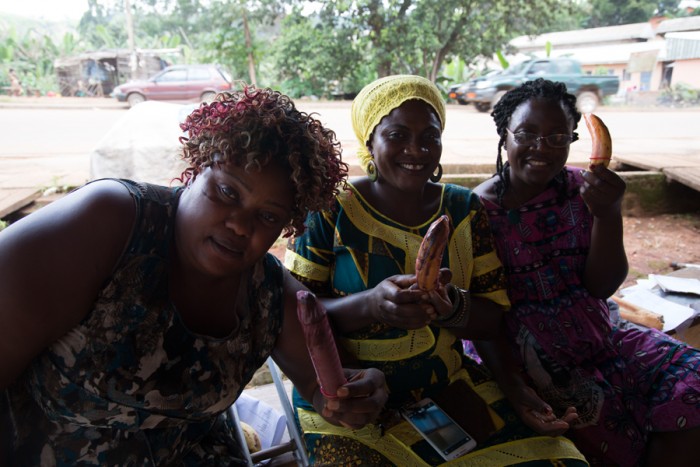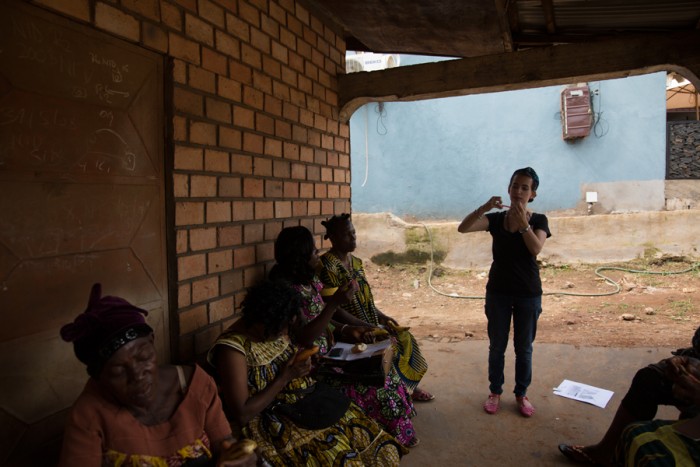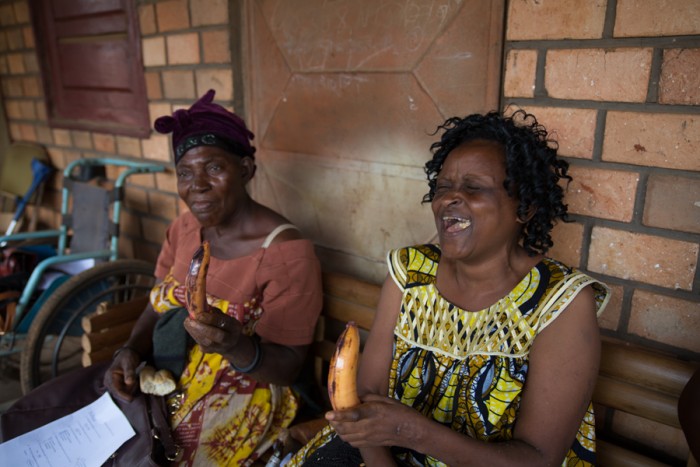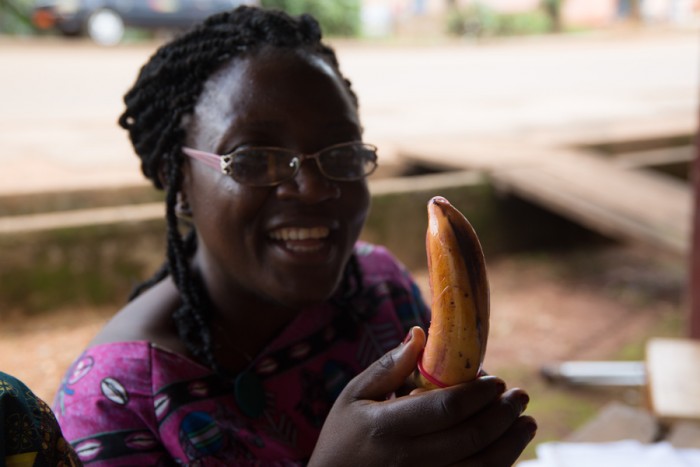July 18th, 2016 by Rachel | Tags: Disability, Health, Peace Corps, Sexual Reproductive Health | No Comments »
In the past few years in the United States, a number of Republicans have been fighting to defund Planned Parenthood because they falsely believe that Planned Parenthood only provide abortion and therefore, they see that by defunding Planned Parenthood, they help end abortion. However, according to the Planned Parenthood’s budget, only 3% of the budget goes to abortion. The rest of the budget goes to providing care for the sexual reproductive health of women such as breast cancer screening, family planning, treating sexually transmitted diseases and contraceptions.
Meanwhile, in Cameroon, many Peace Corps Volunteers including myself, who are paid by taxpayers from the US, are teaching Cameroonians about sexual reproductive health. The goal of teaching them sexual reproductive health is to increase the number of people being willing to talk more knowledgeably about sexual reproductive health, sexual consent, and family planning in their groups, families and communities and being more knowledgeable about their own sexual reproductive health, preventing unwanted pregnancies and communicating about sexual consent. We teach them about different contraception options, which includes condoms, birth control pills, injections, implants, and IUD. We do condom demonstrations where we will have wooden penis models and/or bananas and allow participants practice putting condoms on the models. We do also let them know that abstinence is an option for them too. We help them better understand how having unplanned pregnancies and unwanted children impact them financially. We teach them how to communicate with partners about sexual consent and empower women to have the right to say “no” to sex.

I have conducted three sexual reproductive health workshops so far and plan to conduct more. At my sexual reproductive health workshops, like many other volunteers, I covered family planning, contraception options and sexual consent. I did two hands on demonstrations, which participants have shown strong enthusiasm in learning about sexual reproductive health. I used real bread to demonstrate the importance of family planning by sharing a story of two different families, one family who does family planning and has fewer children and one who does not do family planning and has many children and dividing the pieces of bread based on the number of children each family has. This activity helped participants understand the financial and health impact of children when it comes to family planning. I also used bananas and condoms to do condom demonstrations with them, and they all enjoyed it very much.
The only challenge I have faced is discussing the definition of sexual consent. For example, they state that if they are naked and kissing each other, it automtically means “yes” to sex and explained that it’s the norm in the “African culture.” I explained to them that the situation is similar in the US too, which is that Americans misunderstand the meaning of sexual consent too. I explained that the question is not whether or not it is part of our culture but the question is “Is this a human rights issue?” While I have made clarifications, Ruth has been a wonderful leader by clarifying too to them as a Cameroonian that both men and women do have the right to say “No” to sex at anytime even when they are naked and kissing and that it is always best to make a verbal agreement, which is that both spouses need to verbally say “Yes” before proceeding to sexual intercourse.

I have been administering pre- and post-tests to evaluate whether or not they have learned from the workshops.
At the first workshop, which was conducted with the disability group, Helping Each Other, in the town center of Bamenda, only four members attended and so, it was hard to formulate the results. Three of the members did poorly on the pre-test but did poorly again on the post-test. I think it’s largely due to their level of literacy. One member did well on both the pre- and post-test, scoring above 80%, and he finished secondary education which explains why he performed well on the test.
I conducted the second workshop with the group of women with disabilities. All participants were women, both with and without disability. It was hard to formulate the results because some did worse on the post-test than they did on the pre-test and so, I wonder if they accidentally answered the questions on the post-test before the workshop thinking it was the pre-test and then answered the pre-test questions as the post-test questions. The pre-test questions are on one side of the page and the post-test questions are on the other side of the page. Their level of literacy could also be one of the reasons as they might have just circled the answers randomly rather than taking the time to read them thoroughly and think about the questions. On the post-test, five out of nine scored at least 75% or better. On the post-test, I asked if they have been forced to have sex or not and four circled that they have been forced to have sex, which verifies that women with disabilities do face the situation of being forced to have sex. Six out of nine women answered on the post-test that they do use contraceptions which includes condom, IUD, and abstinence. Because only women took the tests, it was interesting to see that only six out of ten circled “I agree” on both the pre and post-test to the question “Men are responsible for helping women avoid pregnancy.”
Ruth and I then traveled to Bafut, a village near Bamenda and presented to 11 persons with disabilities. Everyone scored in the 70’s and 80’s percent except for one who scored below 65% on the pre-test. Many made at least 10 points gains on the post-test and scored between 85% and 100% except for one person who scored 82%. Four scored 100%. Seven out of 11 shared on the post-test that they do use contraception methods, which include condom, injection, birth control and abstinence. It was interesting to see that this group answered “I agree” except for one on the pre-test and all answered “I agree” also on the post-test to the question “Men are responsible for helping women avoid pregnancy.”








